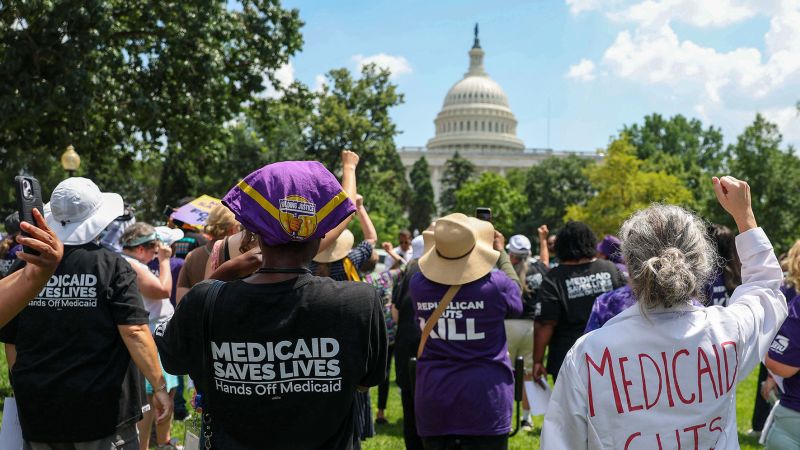President Donald Trump’s sweeping tax and spending bill is poised to impact a broad spectrum of Americans, from seniors and students to low-income families. The bill, which is currently under intense debate on Capitol Hill, was recently passed by the Senate after Vice President JD Vance cast a tie-breaking vote. This legislative move is set to reshape financial landscapes across the nation.
Meanwhile, morale has significantly declined among healthcare professionals at Veterans Affairs hospitals nationwide. Amidst hiring freezes and looming layoffs, doctors and nurses report shortages in essential supplies. These conditions are raising concerns about the future recruitment and retention of medical talent within the VA system.
Exploring the Impact of Trump’s Tax Bill
The tax bill, described as one of the most comprehensive in recent history, aims to overhaul the current tax structure. It proposes significant changes that could affect deductions, tax brackets, and federal spending allocations. Experts suggest that while some taxpayers may benefit from reduced rates, others could face higher liabilities due to the elimination of certain deductions.
“This bill represents a fundamental shift in how taxes are approached in the United States,” said Dr. Emily Carter, an economist at the University of California. “Its long-term effects will depend heavily on implementation and economic conditions.”
The announcement comes as many Americans are already grappling with economic uncertainties. With inflation concerns and fluctuating employment rates, the bill’s potential impact on disposable incomes and consumer spending is under scrutiny.
VA Hospitals Face Morale Crisis
The situation at Veterans Affairs hospitals is becoming increasingly dire. Reports from various facilities indicate that staff shortages and resource constraints are affecting patient care and employee satisfaction. The hiring freezes, instituted as part of broader budgetary controls, have exacerbated these challenges.
According to sources within the VA, the lack of adequate staffing and supplies is not only impacting current operations but also deterring new talent from entering the system. This development follows a series of reforms intended to streamline VA operations and improve service delivery.
“The current environment is unsustainable,” stated a VA nurse who wished to remain anonymous. “We’re doing our best with what we have, but it’s becoming increasingly difficult to maintain the standard of care our veterans deserve.”
Polar Explorations and Environmental Concerns
In a remote expedition to one of the coldest places on Earth, explorer Alan Chambers is collaborating with climate scientists to investigate the presence of microplastics and nanoplastics in polar regions. This research is crucial in understanding the far-reaching impact of pollution and climate change.
The move represents a growing recognition of environmental issues that transcend national borders. As scientists uncover new data, the implications for global ecosystems and human health are becoming increasingly apparent.
“The presence of microplastics in these pristine environments is a stark reminder of the pervasive nature of pollution,” noted Dr. Sarah Lin, a leading environmental scientist. “Our findings could inform future policies aimed at mitigating environmental damage.”
Looking Ahead: Implications and Future Developments
As the tax bill progresses through legislative channels, its implications for the American economy and individual households will continue to unfold. Stakeholders from various sectors are closely monitoring the situation, anticipating adjustments and adaptations in response to the new fiscal environment.
Similarly, the challenges facing VA hospitals highlight the need for strategic interventions to support healthcare workers and ensure quality care for veterans. Policymakers and healthcare administrators are urged to address these issues promptly to prevent further deterioration.
In the realm of environmental exploration, ongoing research in polar regions promises to shed light on the global impact of human activities. These studies are expected to contribute significantly to the discourse on sustainable practices and environmental stewardship.
The developments in these diverse areas underscore the interconnected nature of policy, healthcare, and environmental challenges in today’s world. As these stories continue to evolve, their outcomes will likely influence both national and international agendas.
